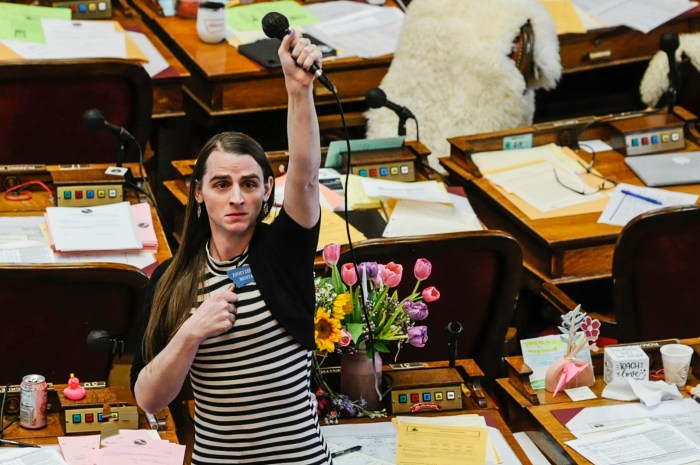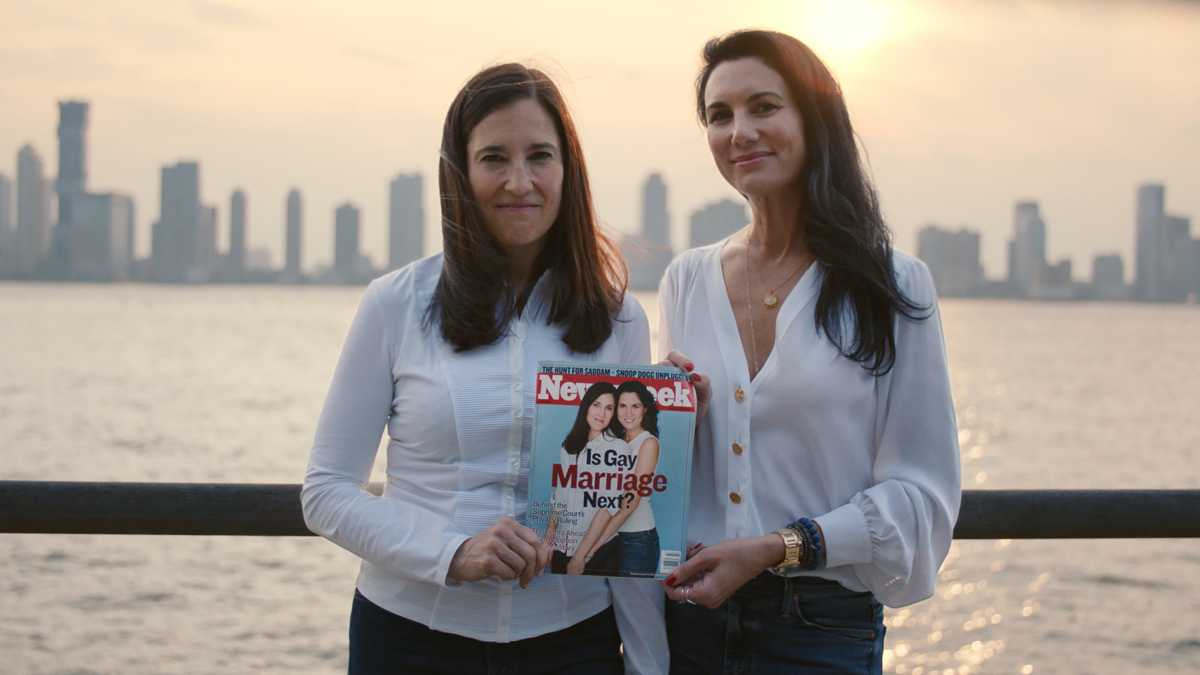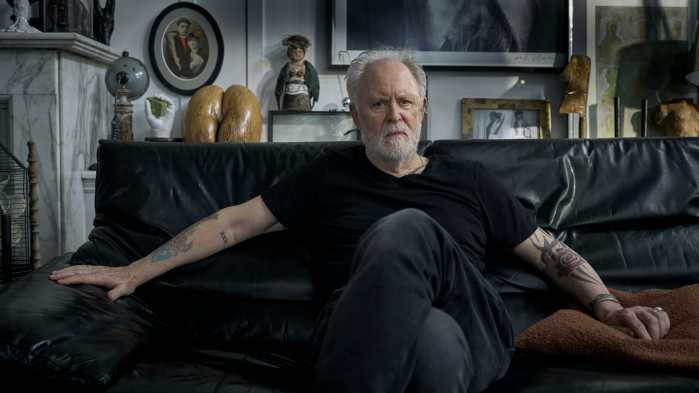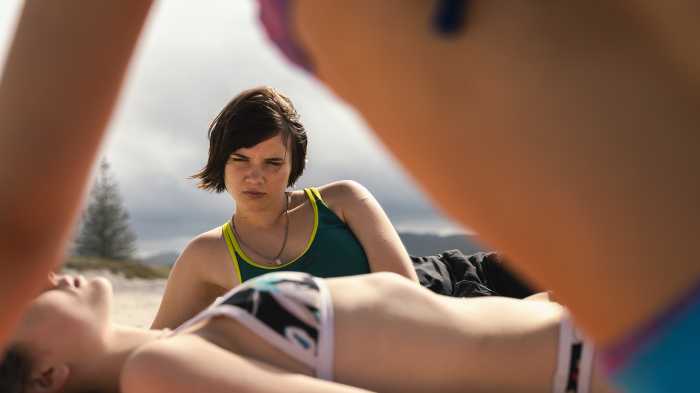DOC NYC, unspooling at various venues and online from Nov. 13-Dec. 1, provides a smorgasbord of non-fiction films. There are more than a dozen features and shorts by or about LGBTQ lives. Here is a rundown of some worthwhile selections from this year’s program.
“Billy Preston: That’s the Way God Planned It” is a loving tribute to the late, great, gay (and largely closeted) musician who had remarkable career highs and some very low personal moments. Director Paris Barclay emphasizes the former showcasing Preston’s astonishing musical prowess. As a youth, he performed in his church and in gospel groups before going on tour at age 16 with Little Richard. He also worked with Ray Charles and the Beatles. But the wealth and fame he achieved was eroded as he succumbed to drug and alcohol addiction. He was arrested multiple times for various crimes and eventually was incarcerated. Barclay’s documentary features Preston’s friends — Ringo Starr and Eric Clapton among them — recalling their interactions with this musical genius who had difficulty reconciling his sexuality and his religion. The performance clips are electrifying, which only magnifies the tragedy of the troubles Preston experienced.
Another music doc, “Any Other Way: The Jackie Shane Story,” reveals the late pioneering trans soul singer. Using a found autobiography as well as recordings of phone calls she had with one of the filmmakers, Michael Mabbott, the film chronicles Jackie Shane’s life and career. Using animated scenes of Jackie on the phone recounting her story, Mabbott and fellow filmmaker Lucah Rosenberg-Lee feature her performing as a teenager in Nashville before hitting the road — she was encouraged to leave town if she wanted to succeed — and finding success in Canada. Jackie headlined sold-out shows at various clubs in Montreal and Toronto, and her hit single, “Any Other Way,” which features a double meaning with its inclusion of the word “gay,” was an anthem to living authentically. As the film shows, Shane had integrity; she refused to perform on “The Ed Sullivan Show” because she would have had to curb her gender expression, and she declined appearing on “American Bandstand” because the show did not feature Black dancers. In the 1970s, Shane “disappeared,” moving to Los Angeles before returning home to Nashville. She was briefly rediscovered with the release of a box set and earned a Grammy nomination. But her extended family members were unaware Jackie ever existed. As a tribute to the legacy of this remarkable singer — whom many folks also probably don’t know — “Any Other Way” is a necessary corrective.
“Between Goodbyes” is an excellent if bittersweet film that chronicles the renewed relationship between Mieke, a queer woman in the Netherlands, and Okgyun, her Korean birthmother. Okgyun and her husband Kwangho were too poor when Mieke was born and gave their daughter up for adoption. Both Mieke and Okgyun each experience a profound sadness, but through Kwangho’s efforts, the family reunites. The initial visit is a bit awkward and tinged by unspoken feelings of guilt and shame over lost years. However, Mieke waits more than a decade to reconnect in part because she has concerns not just about how her birth family will accept her and her Dutch girlfriend/wife, Marit, but also that she does not know what it means to be Korean, having spent almost her entire life abroad. “Between Goodbyes” investigates what home and family mean for Mieke and her birth parents as they each seek understanding and forgiveness. This is a heartbreaking, but life-affirming film, about the power of love. Mieke is a very inspiring subject and Okgyun is equally compelling.
Another film dealing with issues of family and identity is “A Mother Apart,” a highly personal documentary about lesbian poet Staceyann Chin seeking out her birthmother, Hazel, who abandoned her as a child. “My mother remains a mystery to me,” she says, late in the film, while trying to learn more about Hazel from others who knew her. Chin even meets Hazel a few times and their encounters are interesting. The poet does not mince words when Hazel has issues with her daughter being gay. But what makes “A Mother Apart” meaningful is the way Chin’s image of her mother conflicts with the reality of her, and how Chin — a mother herself — works to create a loving relationship with her own daughter.
“Soul of the Desert” profiles out trans Georgina of the indigenous Wayúu tribe in Colombia. She is trying to get an ID card — her papers were destroyed in a house fire — so she can vote, get groceries, and be identified when she dies. The bureaucratic nightmare she faces to achieve her simple goal is frustrating; even her fingerprints are “complicated” because they don’t match. Georgina lives in the desert in part because her brothers did not accept her transition. She encounters various other indigenous people over the course of her journey, and the glimpse of rural life are interesting. Beautifully filmed, “Soul of the Desert” illustrates Georgina’s resilience.
“Bad Reputation,” follows Karina, a passionate advocate for female and trans sex workers in Uruguay. The film shows her discussing the need for rights and unionization as well as how to navigate the work itself; she insists the men shower first! But it also features moments of her alone, with friends or family members, that further humanize and destigmatize her and her work. While the film only briefly showcases a few trans sex workers, Karina is a very appealing and formidable subject who is worth spending time getting to know.

Among the LGBTQ shorts screening at DOC NYC is trans filmmaker Kimberly Reed’s “Seat 31: Zooey Zephyr” (in the “Justice and Democracy” program) about the trans Montana State Representative. Zephyr was censured for speaking out for trans rights during the 2023 session in Helena. She was soon forced to sit outside and vote on the hearings remotely. Moreover, Zephyr was harassed in her new “seat,” and her trans girlfriend Erin Reed was contacted by a SWAT team that had received a report that she was in danger. (She was not.) Director Kimberly Reed captures these infuriating moments as well as some moving ones, including Zephyr inspiring a student or talking at Queer Prom in Missoula where she plans to propose to Erin. “Seat 31” offers an ingratiating introduction to Zephyr and shows her resilience and determination to fight for queer rights.
“Is Gay Marriage Next?” (in the “She Stories” program), is director Emily Clark’s terrific short in which the filmmaker talks with Lauren Leslie and Elisabeth Noel Jones, who famously posed for a “Newsweek” cover back in 2003. The image of a lesbian couple with a headline about same-sex marriage motivated Clark to come out and a briskly animated sequence describes her experiences being closeted as well as reactions from her family. As Clark talks with Leslie and Jones, she hears their coming out stories, as well as comes to understand the impact the cover had on their lives, work, and families. It is gratifying to hear how the image and its question, “Is Gay Marriage Next?,” were perceived. Moreover, Marcus Mabry, who worked at “Newsweek” discusses the image as well as the ambiguous meaning of the headline. But as inspirational as “Is Gay Marriage Next?” is, everyone featured in this short worries if same-sex marriage will be overturned given that the Supreme Court reversed Roe vs. Wade. Clark emphasizes the hope that seeing the “Newsweek” cover gave her, and her short is heartening as well.
“Institution” (in the “Gathered Echoes” program) also addresses the theme of gay marriage as director Jonathan Wysocki juxtaposes footage of his parent’s wedding in 1970 with his own gay wedding in 2018, while audio footage of the 1970 Apollo 13 Mission alternates with Missouri Representative Vicki Hartzler addresses the 2022 House Debate on Marriage Equality Legislation with talk of “protecting religious liberty” and “dismantling the traditional family.” This short film, which runs only four minutes, is alternately chilling and liberating.
“Orgy Every Other Day” (in the “New York New York” program) has various queer sex party organizers recounting some experiences in poignant voiceovers. While one subject describes hosting “Fuck E. Cheese,” a sex party that emulates a children’s party atmosphere, another interviewee talks about Submit, a party for women that creates a non-threatening space for female and trans bodies. The visuals range from erotic animated figures, to photographs, and live bodies in movement. This revealing short is a peek into a sex-positive subculture where consent is key.
“Her Legacy” (in the “Doc NYC U: Community” program) is a student film by Adebowale Williams about Brooklynites Cheryl, a restauranteur, and Tay, who owns a Pilates studio. These women connect and discuss the benefits and drawbacks of being queer Black business owners. As they struggle to find grants—because bank loans are difficult—they also face issues regarding neighborhood change, slow seasons, and wonder about expansion. Watching them encourage and support each other is gratifying in this slight short.
“Wouldn’t Make It Any Other Way” (in the “Artscape” program) is an absorbing portrait of Marc Marcos, a queer Guam transplant, currently living and sewing in Iowa City. When they are called back home to make costumes for a local theater production, Marcos grapples with feelings about family as their mother pressures them to stay, despite their father’s attitudes towards their sexual identity. This short film, directed by Hao Zhou, is as engaging as its subject.
For tickets and more information, visit https://www.docnyc.net/
“DOC NYC” | At various venues November 13-22 and online through December 1




































